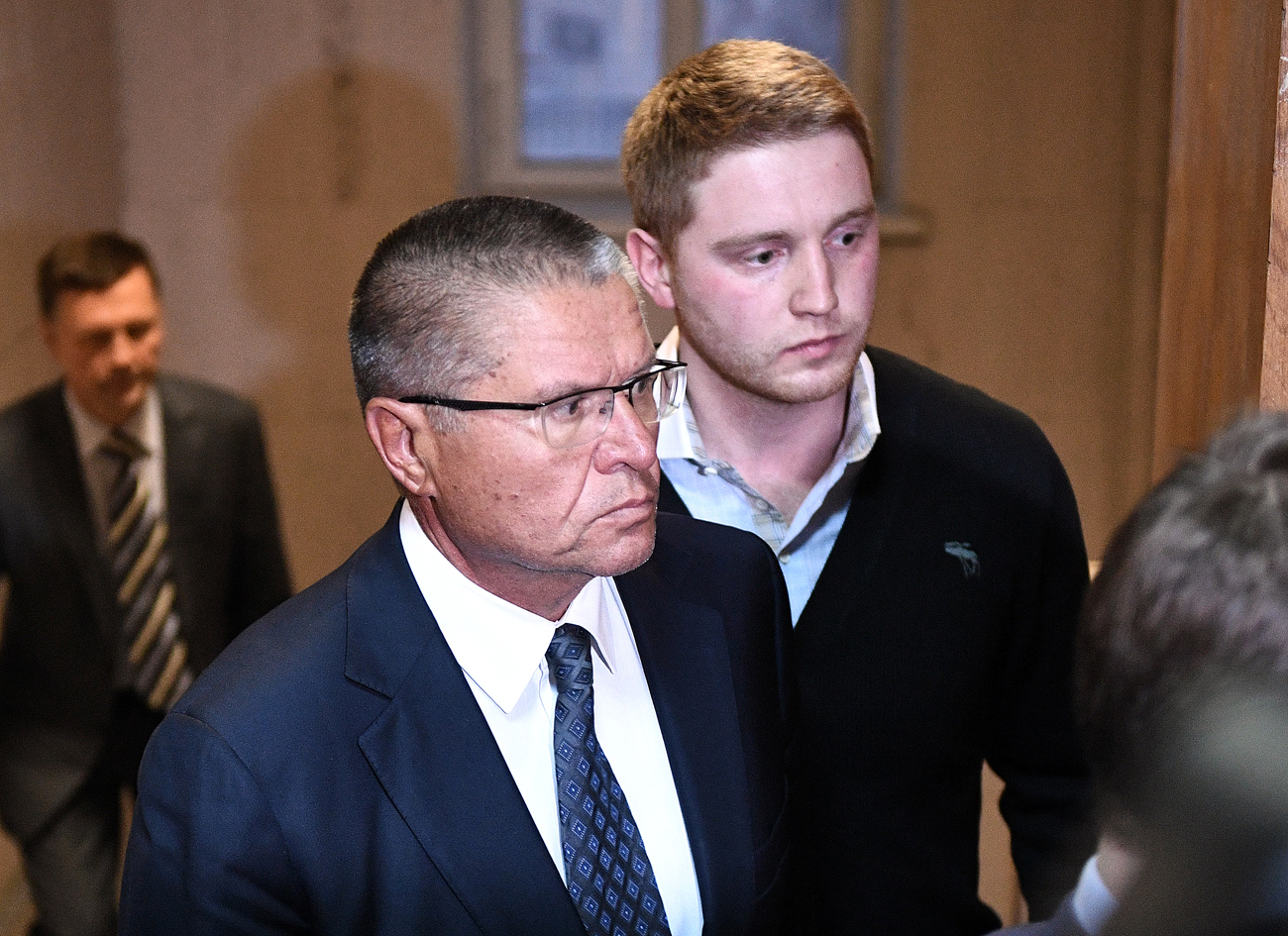
Russian Economic Development Minister Alexei Ulyukayev at Moscow's Basmanny Court.
Maxim Blinov/RIA NovostiThe official version of the corruption case that has stunned Russia and made headlines around the world goes like this: Russian Minister of Economic Development Alexei Ulyukayev was detained and placed under house arrest on Nov. 15 after being caught in the act of taking a $2-million bribe.
According to the investigation, Ulyukayev had extorted the money from representatives of the state-owned Rosneft oil company in return for approving Rosneft’s acquisition of a controlling stake in Bashneft. Ulyukayev has been placed under house arrest but his defense team is denying his guilt.
A Kommersant newspaper source within the Federal Security Service (FSB), which detained Ulyukayev, says (in Russian) that the official was arrested on Nov. 14 at around 5:00 p.m. in the Rosneft building, where he had been given a case containing $1 million in cash.
A similar case, according to the source, was to be brought to the minister's car. Ulyukayev did not touch the money himself, but the handle of the case had been treated with a special substance, traces of which remained on his hands.
"The official's detainment was prolonged for many hours because each $100 bill (there were 20,000 of them!) had to be described and registered," writes Kommersant. The publication also cites the representative of the investigative committee as saying that the investigation has proof of Ulyukayev's guilt but for now is not divulging it for the sake of the investigation.
Leading Russian media say that the main question concerning Ulyukayev's detention is why the minister would try to impede the deal between the two large oil companies.
"Ulyukayev did not have any real possibilities to block this deal (the deal had been agreed to on a very high level, the president himself spoke about it) and Bashneft was sold according to the market price," writes (in Russian) Gazeta.ru. "For now the motive of the bribe is completely unclear."
Another question that remains unanswered is how Ulyukayev had been able to apply sufficient pressure on Rosneft to extort a bribe.
"If Rosneft's acquisition of Bashneft's state shares was conducted in accordance with legislation and did not contradict the privatization law, then it is not exactly clear why Ulyukayev was bribed," the Moskovsky Komsomolets tabloid cites (in Russian) economist Andrei Nechayev as saying.
In the same article, Ruslan Grinberg, scientific director of the Institute of Economy at the Russian Academy of Sciences, says: "Everything seems quite ridiculous because there are many ways to receive a bribe that are much more convenient than the way it happened."
Pyotr Akopov from the Vzglyad newspaper believes that Ulyukayev's arrest proves that the Russian government is serious about fighting corruption, regardless of his high position ("An acting minister has not been arrested in Russia since 1953").
"Whatever the verdict in Ulyukayev's case, the government is showing that it is fighting corruption irrespective of the officials," writes (in Russian) Akopov.
"It is doing it forcefully, effectively. It is difficult to overestimate the importance of punishing Ulyukayev for the general fight against corruption. After this incident the overwhelming majority of society will be convinced that there really are no untouchables.”
In the article, Akopov looks back at previous high-profile corruption affairs, in which the defendants were governors and deputy ministers. Now the defendant is a minister. "The Kremlin is fighting corruption on all floors and levels,” concludes Akopov.
On the other hand, some mass media sources believe that Ulyukayev could have been a victim of groups competing with each other within the government. "Ulyukayev is a representative of the so-called liberal wing in the government's economic bloc," notes political analyst Alexei Mukhin in an interview (in Russian) with MK. "If his guilt is proven, this will be a blow to the wing's image."
Gazeta.ru reminds its readers that Prime Minister Dmitry Medvedev is one of the relative liberals in the government. So are the chairmen of the Central Bank and the Finance Ministry, which means that their positions are now becoming unsteady.
"Ulyukayev's detention appears to be a direct blow to Medvedev," says the editorial. "Moreover, it also affects [former Finance Minister and current head of Putin’s economic council] Alexei Kudrin, whom Putin instructed to write the new economic reform program, the Finance Ministry and head of the Central Bank Elvira Nabiullina."
All rights reserved by Rossiyskaya Gazeta.
Subscribe
to our newsletter!
Get the week's best stories straight to your inbox